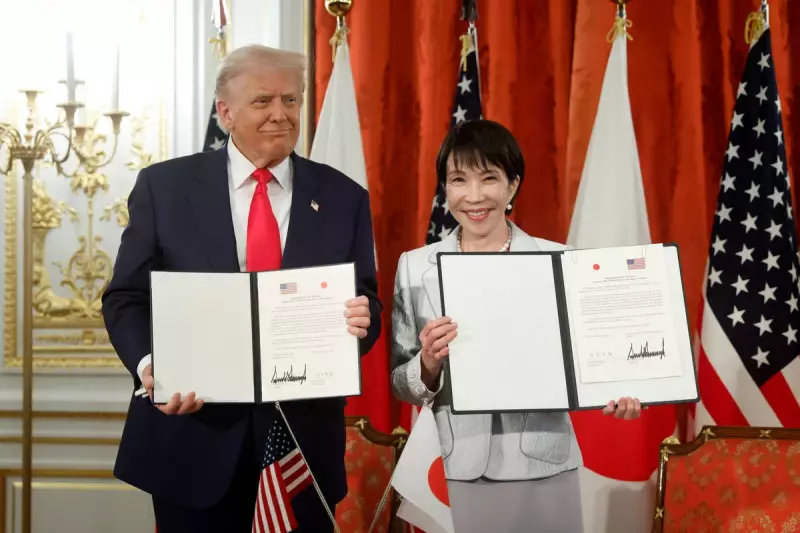
Former US President Donald Trump has ignited a fresh diplomatic controversy with Japan after making startling comments about American automotive giant Ford during a recent political rally.
Unusual Attack Scenario Raises Eyebrows
Speaking to supporters, Trump presented a hypothetical scenario where Japan launched an attack on the United States, specifically targeting Ford's manufacturing facilities. The former president claimed that following such an assault, Ford trucks would become "unrecognisable" due to the destruction.
These remarks have drawn immediate criticism from political analysts and international relations experts, who note the particularly sensitive timing given Japan's status as one of America's closest allies in the Asia-Pacific region.
Japanese Response and Diplomatic Fallout
The comments prompted a response from Japan's Minister for Economic Security, Takaichi Sanae, who expressed concern about the implications of Trump's statements. While maintaining diplomatic decorum, Minister Takaichi's office indicated they were monitoring the situation closely.
"Such rhetoric from a leading presidential candidate creates unnecessary tension in what has been a stable and productive alliance," noted Dr. Eleanor Vance, professor of International Relations at King's College London.
Ford's Position in the Political Crossfire
The American automotive manufacturer found itself unexpectedly at the centre of international diplomacy when Trump specifically singled out their vehicles. Industry analysts were quick to point out that Ford represents a significant portion of American manufacturing heritage.
"Using a beloved American brand like Ford as a prop in hypothetical conflict scenarios is both economically irresponsible and diplomatically reckless," commented automotive industry expert Michael Robertson.
Broader Implications for US Foreign Policy
This incident marks another chapter in Trump's history of controversial statements regarding international allies. Political opponents have seized on the comments as evidence of what they describe as a careless approach to foreign relations.
With the US presidential election approaching, allies worldwide are increasingly concerned about potential shifts in American foreign policy should Trump return to office.
The State Department has yet to issue an official statement regarding the former president's comments, though sources indicate diplomatic channels between Washington and Tokyo remain open and productive despite the political rhetoric.





